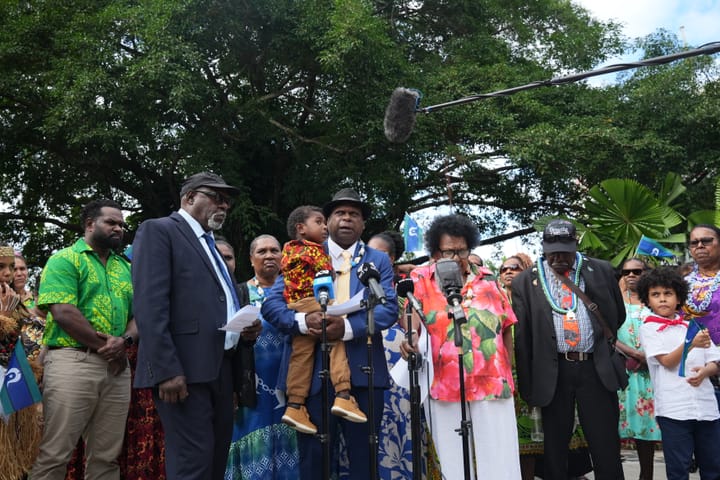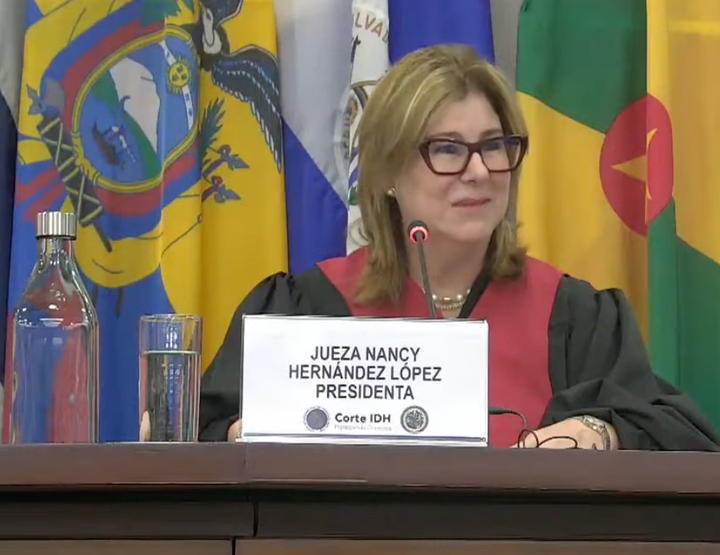Court Hears Youths' Stories, Expert Testimony On Climate Impacts In Montana

The groundbreaking youth climate trial currently underway in Helena, Montana is seeing young people share their personal experiences with climate change impacts for the first time in front of a judge in a US court. Over the past two days, a number of these youth plaintiffs in the case Held v. State of Montana have testified to how the manifestations of climate destabilization – from more intense wildfires and smoke conditions to warming rivers and declining snowpack – are impairing their quality of life and endangering their health. And scientific and medical experts are taking to the witness stand to substantiate and explain how and why these harms are happening.
The lawsuit accuses Montana’s state government of actively exacerbating the climate emergency through persistent permitting and promotion of fossil fuels while simultaneously disregarding the climate consequences of doing so. As a result, the state is already seeing damaging climate impacts that degrade environmental quality – this amounts to a violation of Montana’s constitutional right to a clean and healthful environment, the plaintiffs say.
“I think the state is showing a blatant disregard for Montanans’ right to a clean and healthful environment,” plaintiff Taleah Hernández, now a college student at Montana State University, told the court on Wednesday. She said she feels her government “is prioritizing profits over people, because they know there is visible harm coming to the land and to people, and they’re still choosing to make money instead of care for all Montanans.”
Hernández spoke about her firsthand experience with the worsening wildfires and associated smoke pollution. She noted the smoke has increased over the last few years, triggering headaches and coughing and disrupting her ability to work and recreate outside. In 2021 the Boulder 2700 Fire burned near her home in Polson, Montana, and her family had to prepare to evacuate.

Each of the youth plaintiffs who have testified thus far have shared similar experiences of seeing more frequent fires and dealing with smoke exposure.
Sariel Sandoval, a 20-year-old college student and an enrolled member of Montana’s Confederated Salish and Kootenai Tribes, said she has had to contend with wildfire smoke in the area around her home on the Flathead Reservation. “I can’t even count how many wildfires we have each summer,” she told the court during her testimony on Wednesday.
Georgi Fischer, a 21-year-old athlete from Bozeman who competes in Nordic skiing, said that wildfire smoke has impacted her ability to train properly over the last few summers. She recalled one day, July 27, 2021, when the smoke was so thick and air quality so bad that her coach told the team to move their training indoors to protect their lungs; indoor training for an outdoor sport like skiing is “just not the same,” she explained.
Badge Busse, a 15-year-old who lives in Kalispell, recalled a time when he too, like his fellow plaintiff Taleah, had to prepare to evacuate from a wildfire burning near his home. He said it was “probably one of the most terrifying experiences of my life.” The wildfire smoke has also affected his freedom to do outdoor activities and it has impacted his health. “Usually we just don’t go outside because it’s horrible for your lungs, which is super depressing,” he said from the witness stand on Tuesday.

Mica Kantor, a 15-year-old from Missoula, is an avid runner and enjoys cross-country running and track. But due to the smoke he is sometimes not able to run outdoors. He said he recently went to the doctor for a respiratory problem and was diagnosed with asthma.
That diagnosis is sadly very common nowadays. According to Dr. Lori Byron, a pediatrician and expert in climate change health impacts on youth, about 6 million children (through age 17) in the US, or about 1 out of every 12 kids, have asthma. Children are more vulnerable to air pollution and smoke as their lungs are still developing, she explained in her testimony.
Climate change plays a role in the worsening wildfire smoke that the youth plaintiffs talked about, said climate scientist Cathy Whitlock. “Now because of climate change the risk of wildfires has increased greatly,” she said. “Wildfire smoke is something we’re all going to have to live with unfortunately as we go into the future.”
Whitlock spoke about a multitude of climate change impacts that Montana is experiencing, such as more extreme heat days, shifting seasonal precipitation patterns, larger flood events, and more severe droughts.
“The plaintiffs are experiencing and living with this warming trend…and it’s affecting all of them,” she said during her testimony on Tuesday. Young Montanans like Georgi Fischer who rely on winter snowpack for skiing will be adversely impacted as the state’s snowpack shrinks.
Montana’s iconic glaciers in Glacier National Park are also shrinking and disappearing as the climate warms. Ecologist Dan Fagre, who has studied glaciology in the park for over 30 years, spoke about the importance of mountain glaciers not just for park visitation, but for feeding major rivers and serving as water storage systems. “This free reservoir system is getting smaller, and this is something to be concerned about because we rely on it,” he told the court during his testimony on Tuesday.
Jack Stanford, a freshwater ecologist affiliated with the University of Montana, echoed this concern in his expert testimony on how climate change is affecting Montana’s freshwater ecosystems and the hydrologic cycle. He said Montana is essentially the “water towers of the continent” and that less snow and ice on the mountains impacts us all. “We can’t get through life without a reliable source of freshwater,” he said. Montana’s rivers are warming, threatening fish and impacting people who rely on or enjoy fishing.
Michael Durglo Jr., a member of the Confederated Salish and Kootenai Tribes, said the Flathead River, which is integral to his tribe’s connection to the land, has seen a lot of changes as climate change disrupts ecological stability. During his testimony on Wednesday, he talked about his work developing a climate adaptation plan for his tribal community and helping to inspire youth on the reservation to engage in environmental advocacy. He explained how climate change’s disruption of seasonal cycles and its impact on the land harms the spiritual relations that Indigenous peoples have with the environment. They rely on certain plants for medicine. And the land is their source of subsistence. As plaintiff and fellow tribal member Sariel Sandoval explained: “It’s our way of life. It’s the way we survived for time immemorial…we wouldn’t be here without the land.”
Durglo said that addressing climate change is an urgent imperative: “I think it’s absolutely necessary for our survival that we take action now.”


